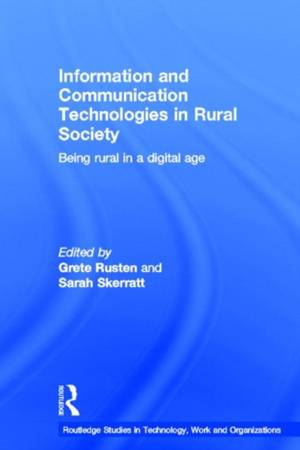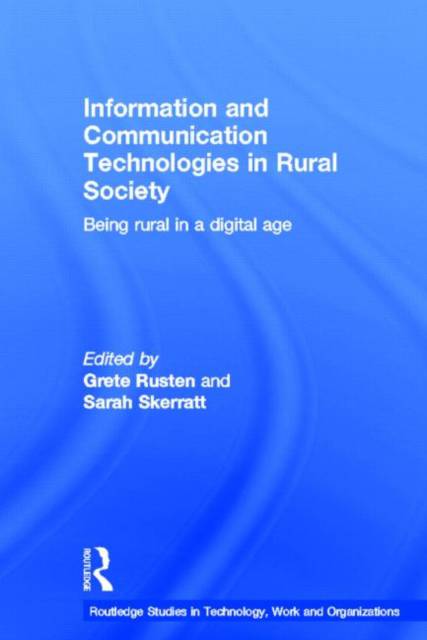
- Retrait gratuit dans votre magasin Club
- 7.000.000 titres dans notre catalogue
- Payer en toute sécurité
- Toujours un magasin près de chez vous
- Retrait gratuit dans votre magasin Club
- 7.000.0000 titres dans notre catalogue
- Payer en toute sécurité
- Toujours un magasin près de chez vous
Information and Communication Technologies in Rural Society
Description
Drawing together the experiences of individuals, households and businesses, this book offers an international perspective on the on how and the extent to which the experiential nature of being rural, whether as an business manager in an SME (or micro-enterprise), a non-business person, a retired inhabitant or a housewife is changing as Information and Communication Technologies become applied more widely and allow people to be connected across geographies.
The contributors investigate ways in which these ICTs are being variously experienced in rural areas of Europe, providing a commentary on changing ruralities and their implications for European, national and regional Information Society policies. These changing ruralities are presented here as the lived experiences of individuals, businesses and communities, and the ways in which their experiences are being enhanced, undermined and variously modified through application of ICTs within business, home, leisure and social relations. The book examines the space and place implications of these changes, as reported in a range of rural settings within Scandinavia and Western Europe.
An essential read for economists interested in the area, Information and Communication Technologies in Rural Society will benefit postgraduate students in areas of research such as rural development, regional development and new technology management among others.
Spécifications
Parties prenantes
- Editeur:
Contenu
- Nombre de pages :
- 200
- Langue:
- Anglais
- Collection :
- Tome:
- n° 4
Caractéristiques
- EAN:
- 9780415411165
- Date de parution :
- 01-11-07
- Format:
- Livre relié
- Format numérique:
- Genaaid
- Dimensions :
- 156 mm x 234 mm
- Poids :
- 467 g

Les avis
Nous publions uniquement les avis qui respectent les conditions requises. Consultez nos conditions pour les avis.





